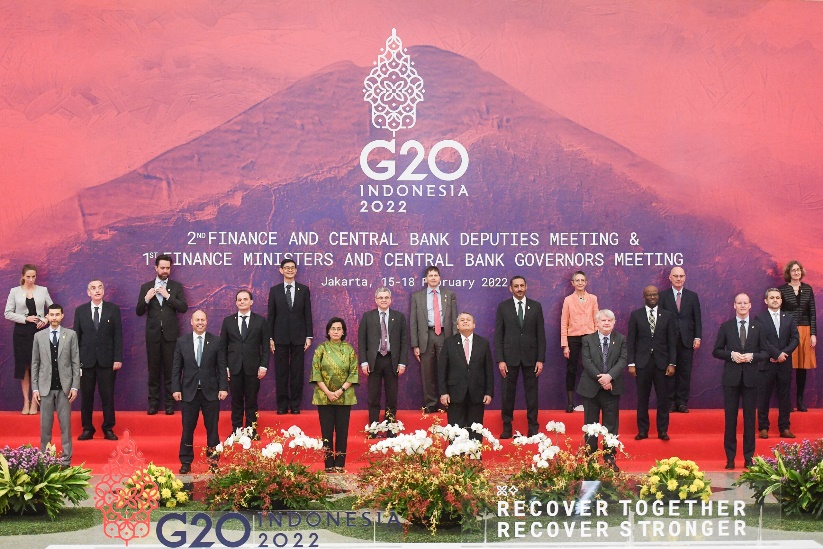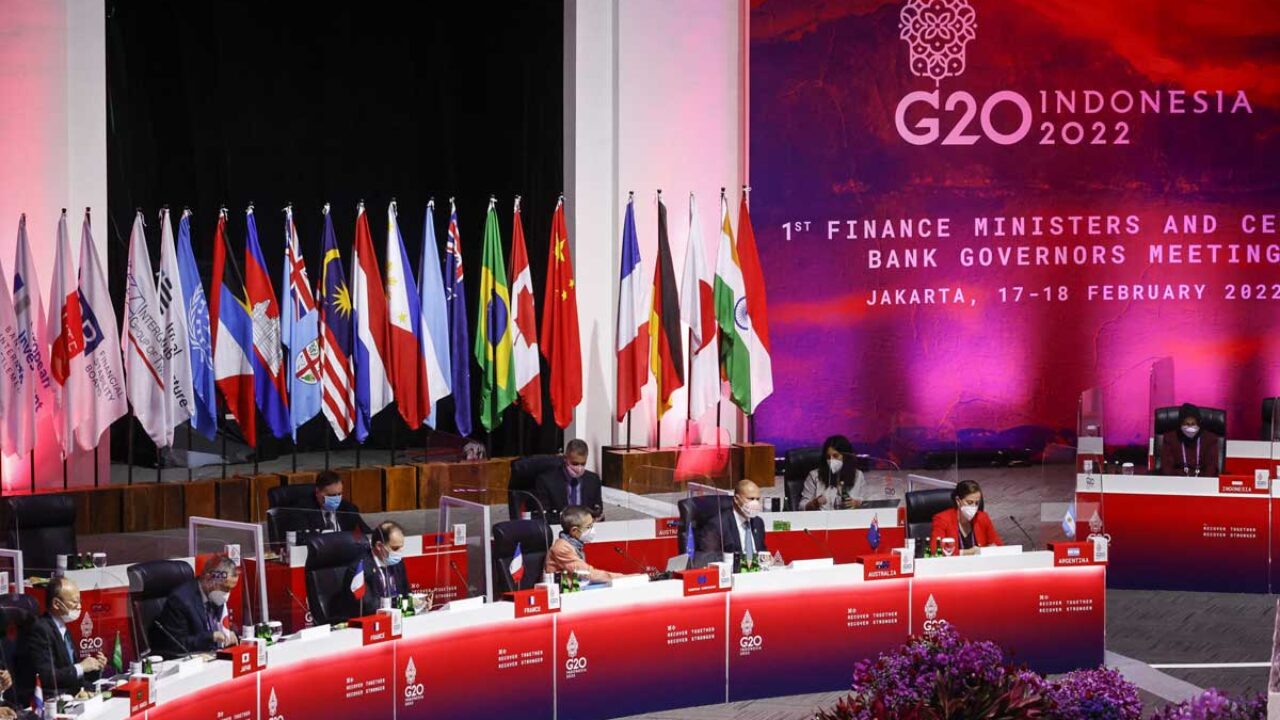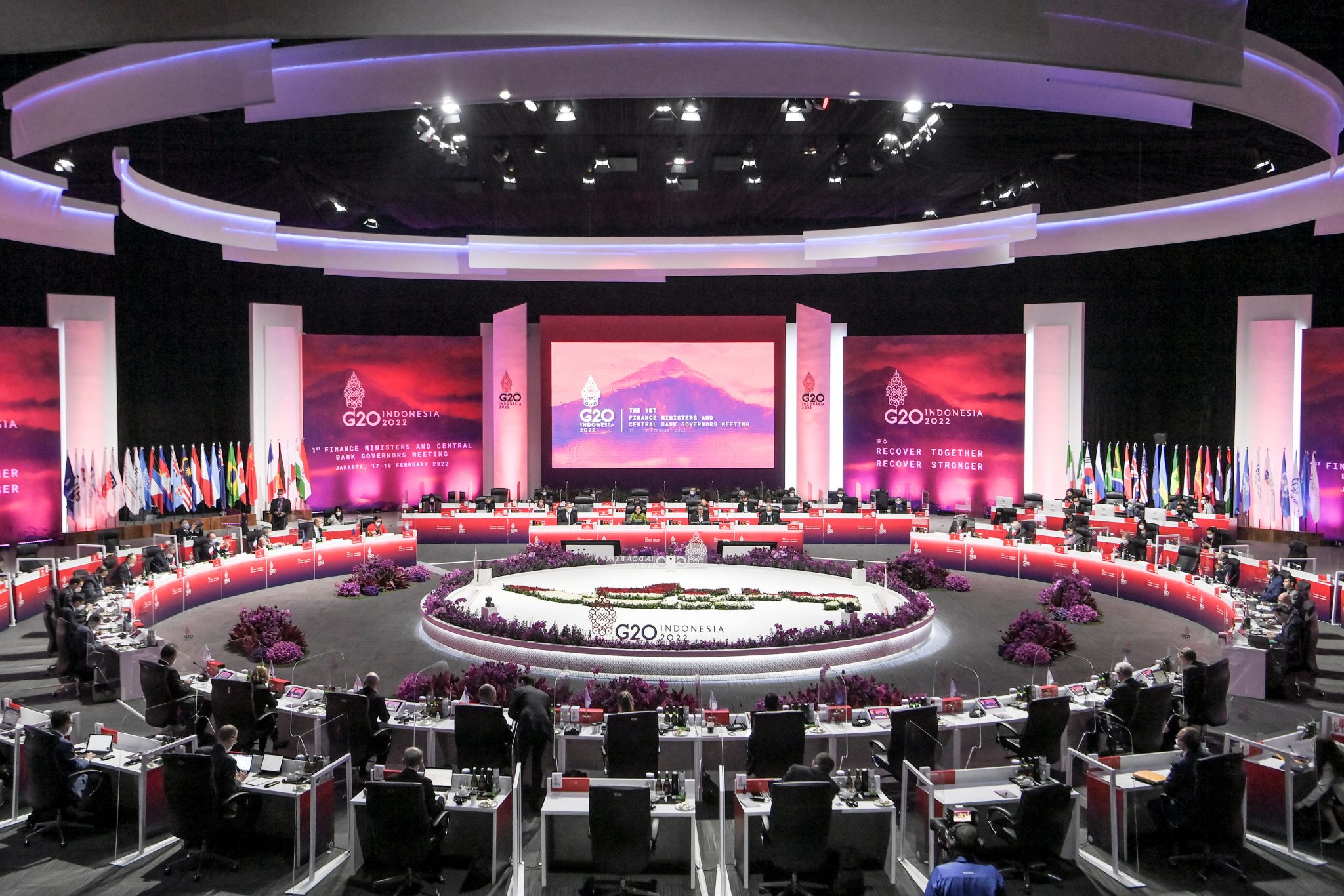G20 Leaders’ Summit 2022

The Group of Twenty (G200 is an intergovernmental forum that brings together top economies of the world to discuss urgent issues affecting the world economy such as international financial stability, climate change mitigation, and sustainable development. G20 comprises 19 countries together with the European Union (EU). This forum was founded in 1999 in response to the world economic crisis.
About COP27:
Summit 2022
This year on November 15, in Bali, Indonesia, the G20 summit, which brought together the leaders of the world’s greatest economies, was held. A two-day meeting of G20 leaders was hosted by Indonesia’s G20 chairmanship and which was concluded on November 16, 2022.
Theme
Under the theme “Recover Together, Recover Stronger,” the G20 leaders discussed a variety of topics, including the three areas that Indonesia would focus on during its G20 presidency: global health architecture, digital transformations, and sustainable energy transitions.
Participant in the Summit
Argentina, Australia, Brazil, Canada, China, Denmark, Finland, France, Germany, Greece, Hong Kong, Italy, Japan, Mexico, Republic of Korea, Russia, Saudi Arabia, South Africa, Turkey, United Kingdom, United States, and the European Union are all G20 members. Spain was also invited as a permanent guest.
Since Russian President Vladimir Putin withdrew, Sergei Lavrov, his veteran Foreign Minister, represented Russia.
Bali hosted British Prime Minister Rishi Sunak’s first important diplomatic test. He made reference to Russia’s invasion of Ukraine directly and emphasised his support for Kiev. We will expose Putin’s regime’s blatant disregard for the kind of global cooperation and respect for national sovereignty that forums like the G20 represent, Sunak said.
The President of Ukraine, Volodymyr Zelensky, has been invited to take part online in the discussion. Also, Indonesia’s Foreign Minister, Retno Marsudi, discussed how difficult it was to conduct the meeting in such a dangerous geopolitical climate. She said, “It might be the most difficult G20 summit yet.”
Key Problems
Rising global tensions brought on by the invasion of Ukraine and its economic repercussions, the climate catastrophe, North Korea’s simmering nuclear programme, and China’s burgeoning global ambitions provided the backdrop for the bilateral discussions.
Moreover, the agenda that Indonesia has established places a strong emphasis on renewable energy, international health initiatives, and economic recovery from the coronavirus pandemic. This was the largest gathering since the pandemic started.
Joko Widodo, President of the G20, hoped that the summit will provide some of the most influential countries with an opportunity to set aside their disagreements and focus on resolving the pressing global concerns of COVID-19’s persistent health dangers, the impending economic recession, and sustainable development. According to Widodo, the G20 is meant to be about the economy and development, not politics.
 Key Takeaways of G20 Summit
Key Takeaways of G20 Summit
Condemning Russian Aggression
Leaders at the G20 summit issued a statement denouncing Russia’s aggression in Ukraine “in the strongest terms” and calling for an immediate and complete withdrawal.
Ukrainian President Volodymyr Zelensky urged Russia to swiftly evacuate its soldiers in his address to the gathering. Zelensky also reiterated his plea for Russian transgressions of international law to be held accountable. He added that resistance would continue until Ukraine’s territory was reclaimed.
Moreover, the majority of members vehemently denounced the conflict in Ukraine and underlined how it was aggravating already-existing economic fragilities by limiting development, raising prices, upsetting supply networks, escalating dangers to financial stability, and enhancing energy and food insecurity.
U.S.-China Ties
Prior to the summit, U.S. President Joe Biden and Chinese President Xi Jinping met bilaterally for the first time since Biden took office. Even though there were not many obvious outcomes, the meeting was successful in the end.
While the three-hour meeting revealed significant differences, particularly with regard to Taiwan, trade limitations, and technology transfers, both parties claimed they nevertheless agreed to maintain open lines of communication and avoid hostilities. The fact that U.S. Secretary of State Antony Blinken will now travel to China early next year—the highest-level American visit to China in more than four years—may be the most tangible result of the meeting.

Global Economy
In their declaration, the G20 economies agreed to gradually raise interest rates to prevent negative ripple effects while also expressing concern over “increasing volatility” in currency movements.
Concerning debt, they highlighted the significance of all creditors sharing the cost and expressed concern over the “deteriorating” status of several middle-income countries.
Food Security
The leaders welcomed the Black Sea grains effort and pledged to take joint action to solve issues with food security. This initiative will make it easier to export grain, food, and fertilisers from Ukraine in a secure manner.
Climate Change
The 2015 Paris Agreement on climate change objective was upheld by G20 leaders, who decided to continue efforts to keep the rise in global temperature to 1.5 degrees Celsius.
On the eve of the summit, the United States, Japan, and allies said they would raise $20 billion in public and private funding to support Indonesia’s closure of coal power facilities and a seven-year delay in the peak emission year of 2030. Additionally, on climate change, Biden and Xi decided to work together once more.
Climate Change
The 2015 Paris Agreement on climate change objective was upheld by G20 leaders, who decided to continue efforts to keep the rise in global temperature to 1.5 degrees Celsius.
On the eve of the summit, the United States, Japan, and allies said they would raise $20 billion in public and private funding to support Indonesia’s closure of coal power facilities and a seven-year delay in the peak emission year of 2030. Additionally, on climate change, Biden and Xi decided to work together once more.
China’s Outreach
During his second overseas trip since the COVID-19 outbreak started, Xi attended bilateral meetings with a number of American allies, demonstrating his readiness to patch fences with critics. In addition to his discussion with Biden, Xi spoke with the leaders of Australia, South Korea, Canada, and France. These leaders included Yoon Suk-yeol, the President of South Korea, and Anthony Albanese, the Prime Minister of Canada.